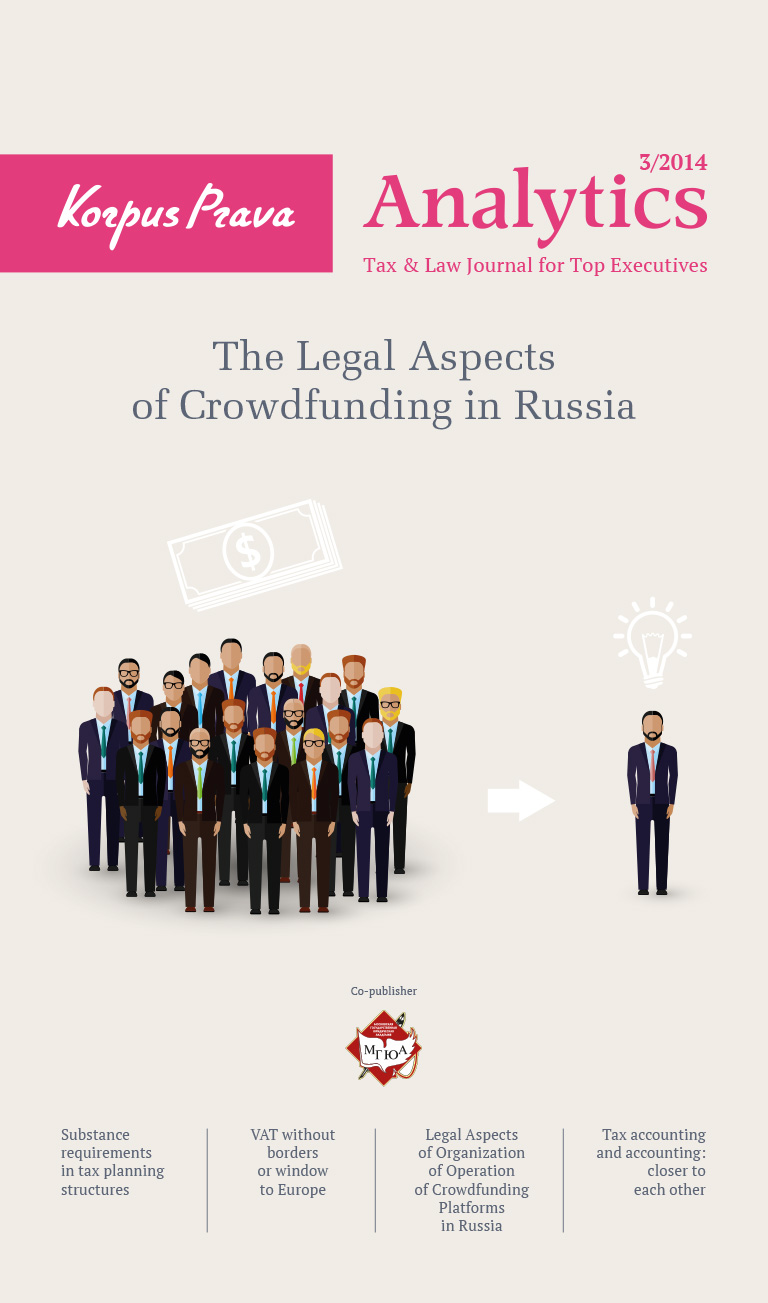- Cyprus Citizenship Scheme for Foreign Investors
- Squeezed But Pleased: Taxation of Passive Income in the European Union
- VAT Without Borders or Window to Europe
- Legal Aspects of Organization of Operation of Crowdfunding Platforms in Russia
- Substance Requirements in Tax Planning Structures
- “Deposit Splitting” of Individuals. Legal Civil and Criminal Aspects
Disclosure of Information at the BVI: Truth or Dare
For many years already the British Virgin Islands have been one of the most used offshore jurisdictions for the registration of foreign companies. The BVI have always attracted investors as jurisdiction for holding business. One of the main reasons why the BVI are so popular is the high level of confidentiality of information. Amendments in the law of the BVI introduced in 2016 may significantly change the state of affairs.
Something about the BVI
The British Virgin Islands are one of the first offshore jurisdictions used since 1980s. Most international companies at the BVI were established as a tax planning tool and property (assets) protection mechanism mostly together with the use of the trust mechanism for holding shares or other property (assets). Companies are registered by licensed registration agents, who should physically be at the BVI and which activity is governed in accordance with the Banks, Trusts and Companies Managers Act, 1990. The economy of the BVI is the most stable and prosperous in the Caribbean. The main area of economic activity is tourism (islands are annually visited by about 800 000 tourists mainly from the USA), and also the significance of the financial sector is constantly increasing.
At the BVI, there is no tax on the profit of organizations (corporate tax) for international companies (BVI Business Companies), and there is no VAT or sales tax. However, a business company should pay an annual duty, which amount depends on the size of the company’s authorized capital and the payment deadline depends on its registration date.
The British Virgin Islands are the most popular jurisdiction, including among Russian entrepreneurs. Today, there are more than 650 000 companies registered: up to 40% of all offshore companies in the world. Activity of offshore companies is mainly governed by the BVI Business Companies Act, 2004. The main factors defining the choice of jurisdiction are: low cost of registration and maintenance of a legal entity, absence of requirements regarding residence of a director, formal requirements for minimum authorized capital, and also opportunity to register company in quick time (literally, in 1 day).
Confidentiality
Until recently, confidentiality was another attractive aspect: at the BVI, there is no unified register of beneficiaries and shareholders. Also, there is no public access to information on directors. In essence, such information may be held strictly confidential by the registration agent, however, there are no official registers kept for the storage of such information. Such information may be transferred to tax and (or) other state authorities only under the BVI court ruling. Possibility to execute a trust agreement was always considered an additional protection measure. The BVI is a state with the common law in force. Within the corporate law, a person establishing a company is called a shareholder. However, such person is de facto a nominee shareholder, which holds shares for the benefit of the ultimate owner (beneficiary). It should be noted that the term nominee shareholder is used only for the purposes of business communication, and in the law the nominee shareholder is called simply a shareholder. Within the trust law, a beneficiary and a so called nominee shareholder enter into a trust agreement, i.e. a trust agreement for property, under which the property is owned by the trustee, who should hold such property for the benefit of the beneficiary. However, data on beneficiary is not disclosed in any official documents of the company or in any share certificates. A nominee shareholder can be both an individual and a legal entity.
Amendments – Information on Directors
At the end of 2015, a draft law emerged introducing amendments to the BVI Business Companies Act, 2004, so called the BVI Business Companies (Amendment) Act, 2015. This draft law shall bind registration agents at the BVI to keep the register of directors of companies registered at the BVI and submit its copy to the Registrar of Companies. The copy shall be submitted to the Registrar within 14 days from the appointment of the first director, and also within 21 day from the introduction of amendments to the register of directors. The register shall be kept by the Registrar in strict confidentiality and may be made available only under the court ruling or on the request of relevant state authorities. Copies of registers of directors shall be submitted to the Registrar until December 31, 2016. The registrar may extend such time period for 6 months, if receives a written confirmation from the company that the company takes all possible measures to submit the register of directors and (or) the company failed to submit the register due to the heavy workload of the registration agent. If the company fails to meet deadlines for the submission of the register of directors, a penalty in the amount of 100 $ shall be imposed on the company. If afterwards the company continues to withhold information, a penalty in the amount of 25 $ per each day of delay shall be imposed on it until the moment the company submits the copy of the register of directors.
Amendments – Information on Shareholders
The BVI Business Companies (Amendment) Act, 2015 also introduces new provisions on the register of shareholders. As currently revised and published, the maintenance of the register of shareholders and also its registration at the Registrar of Companies are not compulsorily. The company may voluntarily submit to the Registrar the register of shareholders and also copies with subsequent alterations, or may also discontinue registration of data on shareholders. The draft law does not specify any time frame for the submission of data to the Registrar.
Amendments – Information on Beneficiaries
On October 22, 2015 there was a regulation published and enacted introducing amendments to the law of the BVI on anti-money laundering and counter-terrorism financing, so called Anti-Money Laundering (Amendment) Regulations, 2015. This law stipulates the following definitions of beneficiary (without limitation):
- An individual, who directly or indirectly owns more than 10% of shares or voting rights in the company (save for the companies, which shares are listed on the recognized stock market);
- An individual controlling the company and not related to the participation in the authorized capital;
- Partnership participants;
- An attorney.
Which data on beneficiary should be kept by the registration agent?
- Full name;
- Date of birth;
- Citizenship;
- Residence address;
- Company goals and activity.
The law sets forth that the relevant person, with whom the customer has entered into the agreement, should collect required information to determine compliance with the definition of beneficiary owner and submit it to the applicable Commission. The “relevant person” means the registration agent, the “client” means beneficiary, and the “Commission” means representatives of various state authorities (Registrar, tax authority and etc.). The law does not specify definition and contents of information. The legislator uses blurred general terminology specifying that the agent should take “reasonable measures” to obtain information on the beneficiary owner for determining his/her compliance with the definition of a beneficiary owner. Thus, the legislator reserves opportunity to consider almost any action a “reasonable measure”. Information should be obtained until December 31, 2016. The time period may be extended, if during 7 months minimum 50% of information is obtained or during 10 months minimum 75% of information is obtained. In case of delay in information submission or refusal to submit information, the company shall be liable to penalty in accordance with the law of the BVI.
Risks
It should be noted that both draft laws do not provide comprehensive information on the issue brought up in this article. BVI Business Companies (Amendment) Act, 2015 has not been published or enacted yet. The document provides clear information only within provisions on directors. As for shareholders, thus far requirements for the submission of information are not compulsory, but, first of all, language of the draft law may change, and secondly, information on many companies will be, most probably, submitted based on the definition of a beneficiary owner set forth in Anti-Money Laundering (Amendment) Regulations, 2015. It means the beneficiary, who owns directly, indirectly or by trust more than 10% of the company in any case will be subject to the law and the registration agent will collect information on him/her.
Anti-Money Laundering (Amendment) Regulations, 2015 provide definition of a beneficiary owner, however, specifying that the legislator is not limited to it. It means in essence, that all beneficiaries may be subject to the law. Also, the legislator does not stipulate the contents of information required for submission and means for its obtainment, it means in essence, that it may be any legal means and any information. Today, registration agents are in standby mode waiting for explanations from the legislator regarding application of adopted amendments in practice.
Information should be kept by the Registrar (registering body) in strict confidentiality and may be granted only under the BVI court ruling or on the request of state authorities. However, in case of further changes of law towards disclosure of information, information on directors, shareholders and beneficiaries will be immediately available due its availability in state authorities. Taking into the account global trends towards transparency and information exchange, such scenario should be considered.
What to do?
Today, business community is worried about upcoming changes at the BVI and is at the stage of elaborating practical solutions for the avoidance of negative consequences for the business. At this stage it is difficult to define clearly ways out due to the absence of practical methods of information collection. Of course, first of all, thoughts on business transfer to other offshore jurisdiction come up, however, it is impossible to exclude same situation in other countries. We plan to get back to this issue in our next editions as soon as there will be clarity regarding application of legislative amendments in practice.
Your subscription to our journal will definitely boost the efficiency of your specialists and downsize your expenses for consultants.
The journal is available free of charge in the electronic version.
Free Download

